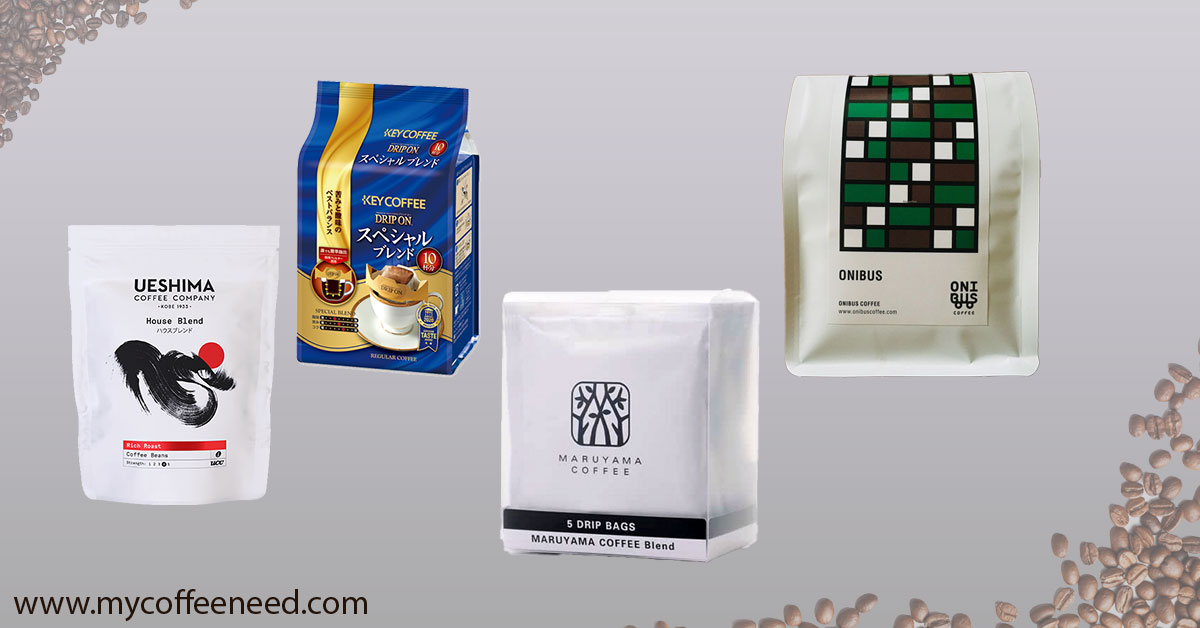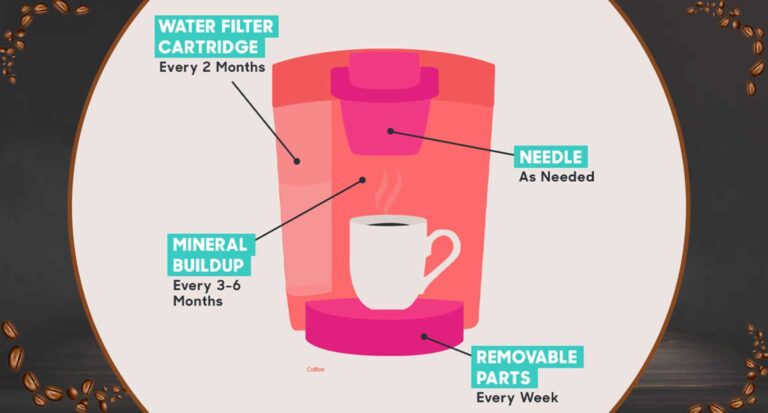Japanese Coffee Brands
In recent years, Japanese coffee brands have gained significant popularity among coffee lovers in the United States. The distinct flavors, meticulous roasting process, and rich aroma of Japanese coffee have captivated the taste buds of coffee enthusiasts. From convenience stores to specialty coffee shops, Japanese coffee has made its mark in the coffee market, offering an array of options for discerning coffee drinkers. In this article, we will dive deep into the world of Japanese coffee, exploring its history, culture, notable brands, and the unique experiences it offers to coffee lovers in the United States.
History of Coffee in Japan
The history of coffee in Japan can be traced back to the late 19th century when it was first introduced to the country. Initially, coffee was considered a luxury product and was primarily consumed by the elite. However, as time went on, the coffee culture started to spread, and coffee became more accessible to the general public. Today, Japan is known for its passionate coffee lovers and their deep appreciation for high-quality coffee. The influence of Western coffee culture, combined with traditional Japanese values, has shaped a unique coffee experience in the country.
Japanese Coffee Culture
Japanese coffee culture goes beyond just a cup of hot coffee. It encompasses the rituals and ambiance of traditional coffee shops, where coffee is enjoyed as a moment of relaxation and contemplation. The concept of “kissaten,” or traditional Japanese coffee shops, has been an integral part of Japanese society for decades. These cozy establishments offer a serene atmosphere where coffee is savored slowly, and conversations flow naturally. In recent years, specialty coffee shops have emerged, focusing on single-origin beans, drip coffee bags, and the art of brewing methods like pour-over and cold brew. These specialty coffee shops provide a space for coffee enthusiasts to explore and appreciate the nuances of different coffee flavors.
Notable Japanese Coffee Brands
Japan is home to several renowned coffee brands that have gained recognition for their commitment to quality and craftsmanship. Here are a few notable Japanese coffee brands that have made their mark in the United States:
1. Ueshima Coffee Company: Founded in 1933, Ueshima Coffee Company has been a prominent player in the Japanese coffee industry. Their dedication to using high-quality beans and the meticulous roasting process has earned them a reputation for producing rich and flavorful coffee. They offer a range of products, including their popular au lait, a blend of rich coffee and creamy milk.
2. Key Coffee: With a history dating back to 1920, Key Coffee is a leading brand in Japan, offering a wide range of coffee products. They are known for their commitment to quality and diverse blends. Whether you prefer dark roasts, light roasts, or something in between, Key Coffee has a blend to satisfy every coffee lover’s palate.
3. Maruyama Coffee: Maruyama Coffee is a specialty coffee brand that has gained international recognition for its commitment to excellence. They source their beans from different regions, focusing on single-origin and high-quality beans. With their emphasis on the quality of each cup, Maruyama Coffee provides a truly exceptional coffee experience.
4. Onibus Coffee: Onibus Coffee is an independent coffee brand based in Tokyo. They are known for their meticulous attention to detail and their dedication to showcasing the unique flavors of different coffee beans. From their carefully crafted espresso drinks to their single-origin pour-over coffees, Onibus Coffee offers a delightful experience for coffee enthusiasts.
Japanese Coffee Culture and Vending Machines
Vending machines are ubiquitous in Japan, and they play a significant role in the coffee culture. Japanese people rely on vending machines for a quick and convenient coffee fix, allowing them to enjoy a hot or cold coffee at any given moment. The canned coffee industry has thrived, offering a wide range of flavors and strengths. Brands like Suntory Boss Coffee, Asahi Wonda, and Georgia Coffee have become synonymous with the convenience and deliciousness of Japanese canned coffee.
Specialty Coffee and Innovation
In recent years, independent coffee shops and specialty coffee shops have flourished in Japan. These establishments focus on sourcing high-quality beans, roasting them in small batches, and delivering an exceptional coffee experience. Names like Leaves Coffee Roasters, Doutor Coffee, and Tadao Ueshima’s Coffee offer a glimpse into the dedication and creativity that Japanese coffee enthusiasts bring to the craft. With an emphasis on single-origin beans, precise brewing techniques, and a commitment to showcasing the unique characteristics of each coffee, these specialty coffee shops have become a haven for coffee lovers seeking the best of the best.
Japanese Coffee Blends
a. Mocha Blend: One popular Japanese coffee blend is the Mocha blend, which combines beans from different regions to create a harmonious balance of flavors. This blend often features a rich and smooth taste with notes of chocolate and caramel.
b. Original Blend: Japanese coffee brands take pride in their original blends, which are carefully crafted to offer a distinct taste. These blends often incorporate a variety of beans, each contributing its own flavor characteristics, resulting in a well-rounded and satisfying cup of coffee.
c. Aromatic Blends: Some Japanese coffee brands focus on creating aromatic blends that showcase unique fragrance profiles. These blends may feature floral, fruity, or nutty aromas, adding an extra layer of sensory delight to the coffee-drinking experience.
Brewing Techniques
a. Pour-Over Brewing: Pour-over brewing is a popular method used by Japanese coffee enthusiasts to extract the flavors of the beans meticulously. This technique involves pouring hot water over a coffee dripper, allowing the water to evenly saturate the coffee grounds, extracting the desired flavors and aromas.
b. Drip Bags: Drip coffee bags, commonly found in Japanese convenience stores, offer a convenient way to enjoy freshly brewed coffee on the go. Simply place the drip bag over your cup, pour hot water, and watch as the coffee drips into your cup, delivering a flavorful and aromatic experience.
c. Siphon Brewing: Siphon brewing, also known as vacuum brewing, is a fascinating brewing method that utilizes a two-chambered glass apparatus. Through the application of heat and vapor pressure, water is forced from the lower chamber into the upper chamber, mixing with the coffee grounds. The brewed coffee then returns to the lower chamber, ready to be served. Siphon brewing is known for producing a clean and crisp cup of coffee with a delicate flavor profile.
Specialty Coffee Shops and the Art of Brewing
Specialty coffee shops in Japan are havens for coffee enthusiasts seeking the best quality and unique brewing experiences. These establishments often employ skilled baristas who are trained in various brewing techniques, ensuring that each cup of coffee is meticulously crafted. From pour-over to espresso-based drinks, these specialty coffee shops focus on showcasing the flavors and complexities of Japanese coffee blends.
Conclusion
Japanese coffee brands offer a diverse range of blends and utilize brewing techniques that bring out the best flavors in their beans. Whether you prefer the rich and balanced taste of a Mocha blend or the unique aromas of an original blend, Japanese coffee has something to cater to every palate. By embracing brewing methods like pour-over, drip bags, or siphon brewing, you can experience the artistry and craftsmanship that goes into each cup of Japanese coffee. So, explore the world of Japanese coffee blends, experiment with different brewing techniques, and discover the joy of indulging in the remarkable flavors that Japanese coffee brands have to offer.
Frequently Asked Questions (FAQs)
1. What makes Japanese coffee brands unique?
Japanese coffee brands are known for their meticulous attention to detail, commitment to quality, and diverse flavors. The Japanese take great pride in the roasting process, ensuring that each batch of coffee beans is carefully roasted to bring out the best flavors and aromas. Additionally, Japanese coffee brands often focus on single-origin beans, allowing coffee lovers to explore the distinct characteristics of different regions.
2. Where can I find Japanese coffee brands in the United States?
Japanese coffee brands have gained popularity and are now available in various locations across the United States. Specialty coffee shops, both large chains and independent establishments, often carry a selection of Japanese coffee brands. Additionally, online retailers offer a convenient way to purchase Japanese coffee beans and products, bringing the flavors of Japan right to your doorstep.
3. Are Japanese canned coffees worth trying?
Absolutely! Japanese canned coffees have become iconic and are loved for their convenience and delicious flavors. Brands like Suntory Boss Coffee, Asahi Wonda, and Georgia Coffee offer a range of options, including black coffee, cafe au lait, and iced coffee. These canned coffees often have a rich flavor profile and are a popular choice among busy individuals or those looking for a quick coffee fix on the go.
4. What is the significance of traditional Japanese coffee shops?
Traditional Japanese coffee shops, known as “kissaten,” hold a special place in Japanese coffee culture. These establishments offer a serene and nostalgic ambiance, where patrons can enjoy their coffee in a relaxed setting. Kissaten often focus on the art of brewing and may offer a variety of brewing methods, including pour-over and siphon brewing. They are a great place to experience the traditional side of Japanese coffee culture and savor the flavors of expertly brewed coffee.
5. Can I brew Japanese coffee at home?
Absolutely! Brewing Japanese coffee at home is an enjoyable experience. To replicate the flavors of Japanese coffee, consider using high-quality beans, paying attention to the roast level that suits your preference, and exploring different brewing methods such as pour-over or using drip bags. Japanese coffee equipment, such as drippers or siphon brewers, can enhance the brewing experience. Experimenting with different techniques and finding the perfect blend will allow you to enjoy the richness of Japanese coffee in the comfort of your own home.
6. What are some popular Japanese coffee brands known for their quality?
Several Japanese coffee brands have gained recognition for their commitment to quality and exceptional taste. Some of the popular ones include Ueshima Coffee Company, Key Coffee, Maruyama Coffee, Onibus Coffee, and Doutor Coffee. These brands have established themselves as leaders in the industry, providing coffee lovers with a wide range of options and delivering unforgettable coffee experiences.
7. Are Japanese coffee brands suitable for different types of coffee drinks?
Absolutely! Japanese coffee brands cater to a variety of preferences and offer options for different types of coffee drinks. Whether you prefer a strong black coffee, a creamy cafe au lait, a refreshing iced coffee, or a specialty blend, Japanese coffee brands have you covered. Their commitment to quality ensures that you can enjoy a wide range of flavors and brewing styles to suit your preferences.
Explore the world of Japanese coffee brands, and embark on a flavorful journey that showcases the rich history, meticulous craftsmanship, and diverse offerings of the Japanese coffee culture. Enjoy the distinctive flavors, savor the aromas, and discover why Japanese coffee has captured the hearts of coffee lovers around the world.
Japanese coffee brands not only offer single-origin beans but also excel in creating unique blends that cater to different tastes and preferences. Here, we delve into the world of Japanese coffee blends and the brewing techniques that bring out their best flavors.



